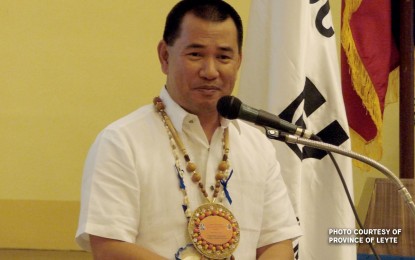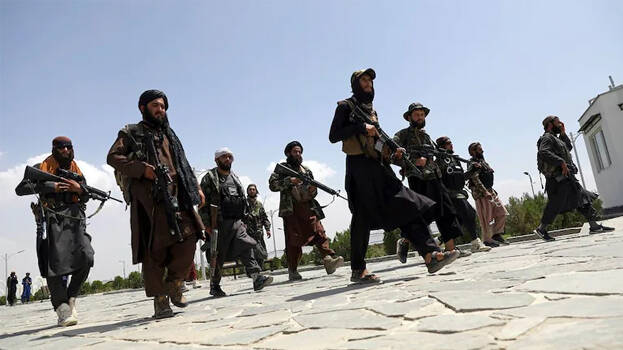An estimated 387, 503 households in Botswana out of 669, 429 acquire either one or extra safeguard internet programs from govt as a way of cushioning them in opposition t either poverty or harsh consequences of low earnings residing standards.
This has been published by means of a social safety web statistical brief (stats brief) released via statistics Botswana this week. The stats short offers estimates on households that acquired govt transfers in the sort of social security nets, in response to facts gathered within the third quarter of 2019 through the Quarterly Multi-subject Survey.
The security nets module changed into basically protected to give estimates on the variety of households that benefited from safeguard nets and different executive programmes. a complete of three, 240 households were sampled, yielding 669, 429 households after weighting. Households were asked in the event that they have obtained any counsel from programmes coated under the safety nets module, allowing for that one family unit might acquire multiple safeguard internet equipment.
The effects showed that fifty seven.9% (387, 503) of the households received both of the social defense nets packages. Of the recipient households. fifty five.9% had been feminine headed, whereas forty four.1% had been male headed households. this is in step with all poverty survey outcomes performed within the country in the past, which indicated that poverty changed into greater frequent in female headed households compared to male headed households.
The effects extra indicated that the faculty feeding programme coated a bigger share of households at 41.1%, followed with the aid of prone group feeding, historic age pension and Ipelegeng at 23.7%, 15.9% and 14.9% respectively, showing an identical sample of insurance accompanied within the Botswana Multi-theme household Survey (BMTHS) of 2015/sixteen.
further records decomposition by way of domains/strata revealed that social defense nets interventions are dominant within the rural areas as compared to urban villages and cities/cities. evaluation with the aid of data Botswana printed that the share of Social security Nets (SSN) beneficiaries in rural areas changed into 68.3%, followed by city villages and cities/towns at 58.9% and 40% respectively.
The consequences extra showed that the most dominant social defense nets programmes in rural areas encompass amongst others Rural enviornment construction Programme (RADP), Poverty Eradication Programme, cattle management and Infrastructure development (LIMID), Destitute individuals Programme and Ipelegeng at ninety.eight%, eighty one.8%, 60.eight%, 60.1%, & 58.7% respectively.
The neighborhood domestic based mostly kit, faculty feeding, inclined neighborhood feeding and incapacity kit allowance are more admired in urban villages at forty seven.7%, forty six.7%, 44.2% and forty.1% respectively.
The dominant programmes in cities/towns, besides the fact that children at lessen proportions compared to rural areas and urban villages, contains school feeding, incapacity kit allowance, susceptible community feeding and orphan care programmes at sixteen.1%, 15.3%, 12.1% and eleven.2% respectively.
evaluation of households that benefited from quite a few add-ons of the orphan care programme by means of strata indicated that from the total number of households that received the orphan care package, the food basket including the toiletries part lined a larger share of households at 87.9%, adopted by means of college uniforms, tutorial support and informal clothing add-ons at forty four.1%, forty.eight%, and 28.4% respectively.
in line with the Social protection Sector overview (World financial institution and BIPDA, 2013), the concentrated on mechanisms fluctuate for each and every programme, some classes are universal (orphan care, needy college students, school feeding, OAP, Veterans), categorical (VGFP), potential-established (destitute folks, CHBC) and self-option (Ipelegeng).
at the moment Botswana's safety web applications are college Feeding application, orphan care application , vulnerable agencies feeding software , Ipelegeng , neighborhood domestic based care , destitute persons program , far flung enviornment building plan(RADP) amongst others.
With school feeding software, students are supplied with breakfast and lunch, based on the Social insurance plan Sector evaluate. The college students obtain a meal corresponding to 1/three of a child's each day nutrition needs and it incorporates samp, beans, sorghum meal, beef, stew, vegetables, fruits, tea, and agricultural produce amongst others.
under the Orphan Care program, Botswana opted for a slim definition of orphans as described in the 1999-2011 brief-term Plan of motion on Care of Orphans which posits that an orphan is a baby below 18 years who has misplaced both folks in the event that they have been married, or one parent within the case of single-father or mother households.
The application turned into delivered in 1999 and it is likely one of the biggest guidance programs in Botswana designed to reply to the needs of orphaned little ones such as food, clothing, shelter, schooling, coverage and care. The beneficiaries are not potential-tested, because the application is open to all orphaned little ones.
The prone businesses Feeding application (VGFP) was brought in 1988 with the intention to distribute nutrition and nutritional supplements to americans who are liable to under-meals.The software offers month-to-month home rations through clinics to inclined little ones aged 6-60 months, pregnant and lactating ladies, and to tuberculosis (TB) and leprosy sufferers from terrible households. The ration contains Tsabana, Malutu, beans and sunflower oil.
The remote enviornment building Plan (RADP application was in the beginning financed projects supposed to improvement marginalized communities in far flung areas. After its comparison which changed into authorized in 2010, it now specializes in neighborhood led tendencies, introduction of sustainable livelihoods systems and an affirmative motion application for deprived agencies
Destitute men and women application changed into established in 1980 with the intention to assist those that haven't any other supply of support. Beneficiaries are capacity-established through assessments performed via social employees. The Village and Ward development Committees and different native authorities or associations from time to time help in choosing advantage beneficiaries prior to these assessments.

 © supplied by means of 24/7 Wall St. The U.S. Census Bureau's measure of poverty is particularly complex. it's in response to each household measurement and profits. It comprises unemployment benefits, Social protection, pensions and dividends. It does not encompass capital positive factors and tax credit. It cannot be measured for people who live in militia housing or college dormitories. For a single person, the number is below $12,880 a year. For a family unit of 4, the number rises to $26,500.
© supplied by means of 24/7 Wall St. The U.S. Census Bureau's measure of poverty is particularly complex. it's in response to each household measurement and profits. It comprises unemployment benefits, Social protection, pensions and dividends. It does not encompass capital positive factors and tax credit. It cannot be measured for people who live in militia housing or college dormitories. For a single person, the number is below $12,880 a year. For a family unit of 4, the number rises to $26,500.

 © Ritu Singh | Trending Desk Pakistan Minister Says 'Taliban Will assist Us conquer Kashmir', Trolled After Video Goes Viral
© Ritu Singh | Trending Desk Pakistan Minister Says 'Taliban Will assist Us conquer Kashmir', Trolled After Video Goes Viral  © provided with the aid of The Print
© provided with the aid of The Print  © offered by way of DNA
© offered by way of DNA 
 © Submitted Amy Jardell, government director for Ozarks Literacy Council.
© Submitted Amy Jardell, government director for Ozarks Literacy Council.